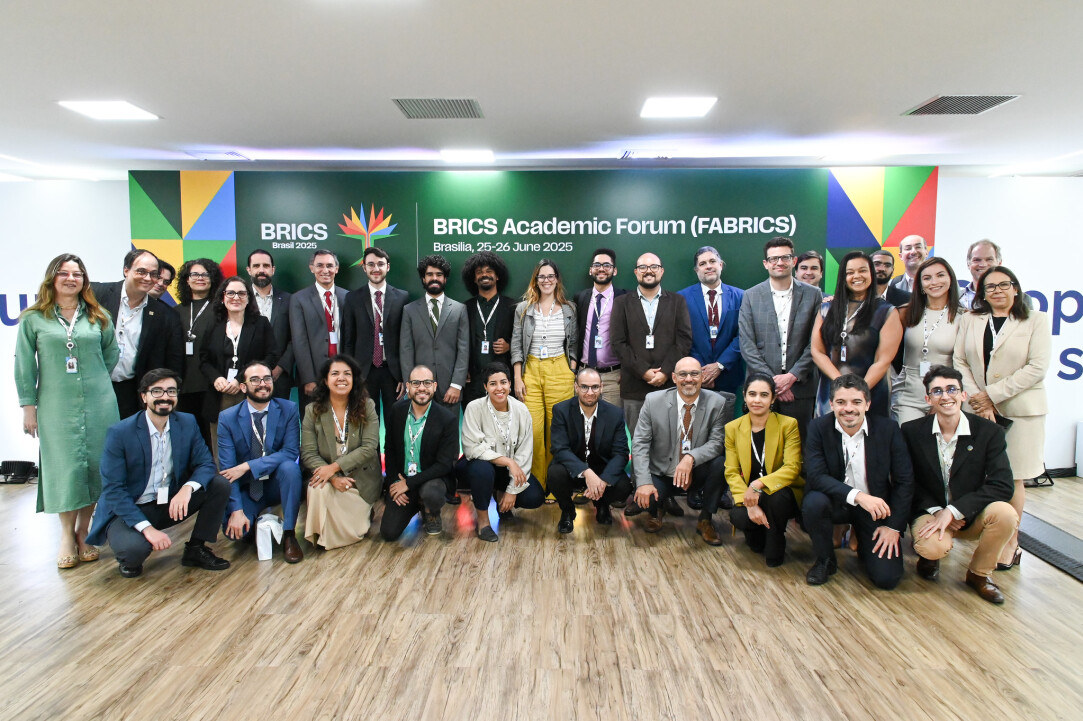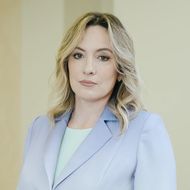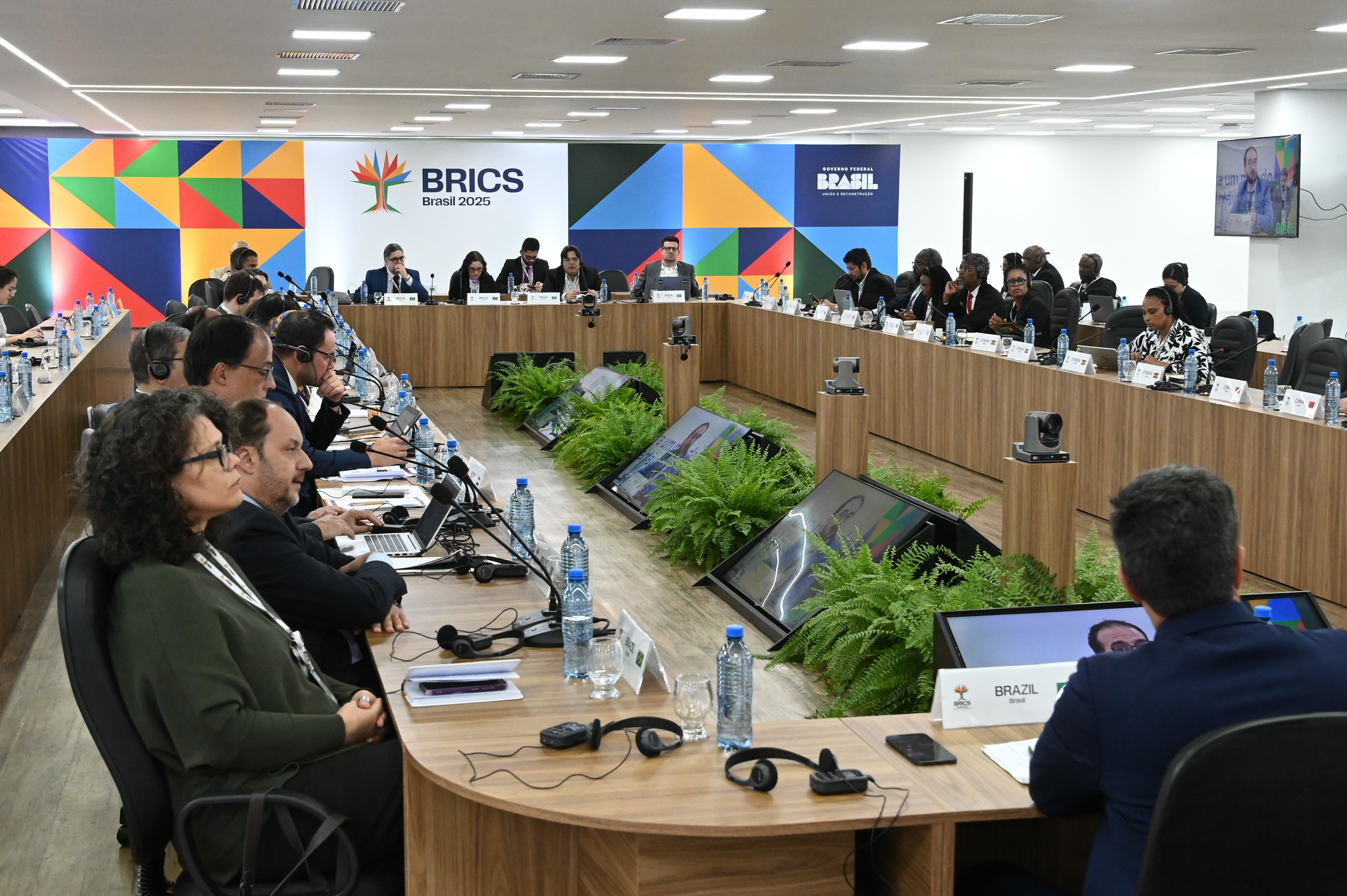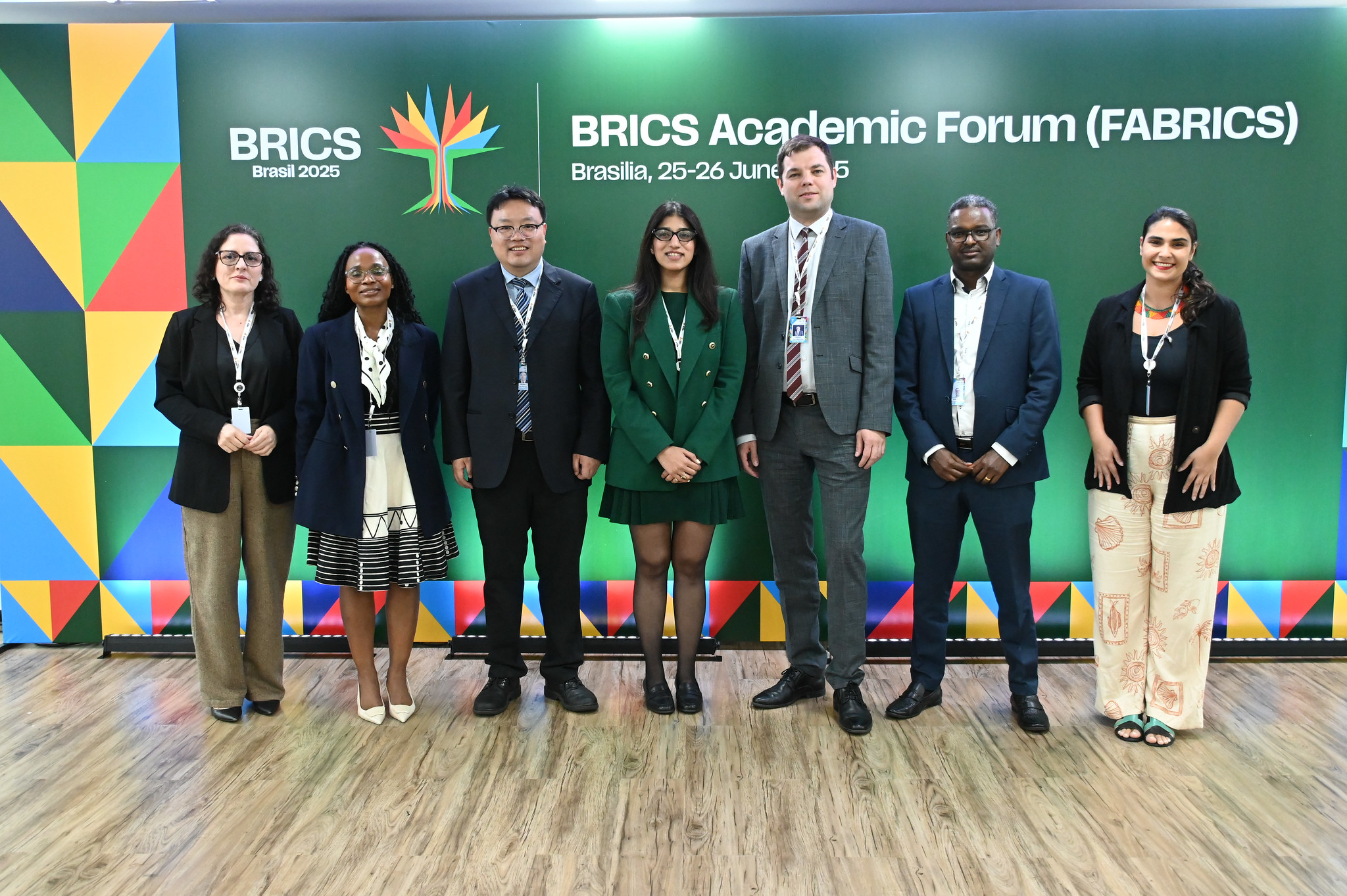‘Artificial Intelligence Has Become the Lifeblood of the Global Economy’

Experts from HSE University took part in the BRICS Academic Forum (FABRICS) held in the capital of Brazil this year. The main theme of the event was to discuss cooperation among countries in the Global South amid geopolitical turbulence and rapid technological change. Academics and experts from BRICS member states and partner nations explored topics such as global healthcare, AI technologies, trade, climate change, and reform of the multilateral global security and governance architecture.
The Academic Forum, held on June 25 and 26, 2025, served as a platform for open dialogue and the development of joint initiatives aimed at strengthening the role of the BRICS countries on the global stage.
The forum opened with a welcoming address from Victoria Panova, Vice Rector of HSE University, Head of the BRICS Expert Council–Russia, and Russia’s Sherpa in the W20. She emphasised that over the past 17 years, the Academic Forum has become a vital platform for dialogue, problem-solving, and collaborative intellectual efforts.

Victoria Panova
‘We are living in an era where questions of peace and sustainability are becoming decisive. The BRICS countries have already demonstrated their capacity for coordinated action, including in response to recent international crises. As an academic community, we are not only obliged to analyse what is happening, we must also articulate the principles on which a new model of global cooperation can be built,’ noted the HSE Vice Rector.
Victoria Panova cited forecasts suggesting that by 2030, the Global South’s share of the world economy will exceed 57%, and trade between countries in the region may reach 14 trillion US dollars. She also presented results from the first comprehensive analysis of how the BRICS countries are fulfilling their own commitments, conducted in 2024 with the participation of the Council of BRICS Expert Centres. Victoria Panova announced plans to make this type of research a regular practice, alongside the creation of a BRICS digital document repository—a unique resource for scholars and practitioners that will bring together all of the grouping’s key materials since its inception.
At a session on AI governance, Konstantin Vishnevskiy, Director of the Centre for Strategic Analysis and Big Data at the HSE Institute for Statistical Studies and Economics of Knowledge, and an expert with the BRICS Expert Council–Russia, delivered a presentation. He noted that ‘artificial intelligence has become the lifeblood of the global economy,’ with the global AI market approaching 640 billion US dollars and continuing to grow rapidly.

Konstantin Vishnevskiy
‘Almost every second AI solution is being developed in the BRICS countries or for their markets. This highlights the bloc’s immense technological potential. However, it is not only about competing in the global race—we must also set the principles upon which global AI governance will be built,’ he said. ‘We must ensure that technological development is ethical, fair, and inclusive. AI must not become the cause of new digital inequality—on the contrary, it can and should be a tool for levelling the playing field, especially for countries in the Global South.’
The expert also spoke about the upcoming launch of an international AI foresight initiative in 2025, which was commissioned by the President of Russia. HSE University is serving as the methodological lead for this project, coordinating the joint efforts of researchers, public institutions, and businesses to define priorities for both fundamental and applied research in the field.

Igor Makarov, Head of the School of World Economy, Director of the Laboratory for Economics of Climate Change at the HSE Faculty of World Economy and International Affairs, and expert of the BRICS Expert Council–Russia, spoke during the session on climate change, emphasising the need for BRICS to formulate its own agenda in the run-up to the COP-30 climate conference in Belém. He highlighted the fact that current green transition models largely reflect the interests of developed countries and fail to take into account the realities of developing economies.

‘There is a lot of discussion today about the ‘just transition,’ yet universal solutions continue to be imposed without considering the actual circumstances in Global South countries. BRICS can offer an alternative approach based on technological neutrality, balancing mitigation and adaptation efforts, and respecting national specificities. It is crucial not to merely repeat long-term targets, but to move towards shaping a new consensus that reflects the genuine interests of the majority of countries worldwide,’ Igor Makarov stated.
The speaker suggested launching a multilevel discussion on a new sustainable development agenda with the BRICS expert community as the foundation for a unified position at global forums, including the UN system.
As a result of the two-day session, the BRICS Academic Forum in Brasilia has developed expert recommendations, which will be forwarded through the Sherpa channels to the leaders of the BRICS countries before the upcoming summit. These recommendations cover a range of key areas, including the development of a fair global governance architecture, coordination on climate change initiatives, digital transformation, and strengthening the institutional capacity of BRICS.
See also:
HSE Psycholinguists Launch Digital Tool to Spot Dyslexia in Children
Specialists from HSE University's Centre for Language and Brain have introduced LexiMetr, a new digital tool for diagnosing dyslexia in primary school students. This is the first standardised application in Russia that enables fast and reliable assessment of children’s reading skills to identify dyslexia or the risk of developing it. The application is available on the RuStore platform and runs on Android tablets.
HSE University Holds HSE CS × BRICS Ideathon
On November 9, 2025, the HSE CS × BRICS Ideathon—a large-scale intensive event for students aimed at developing international project skills and finding solutions to current challenges facing BRICS countries—took place at HSE University’s Pokrovsky Bulvar campus. The event was organised by the Multilateral Strategic Projects Office with the support of the BRICS Expert Council–Russia , the Faculty of Computer Science (FCS), and the HSE FCS Hackathon Club
HSE Scientists Optimise Training of Generative Flow Networks
Researchers at the HSE Faculty of Computer Science have optimised the training method for generative flow neural networks to handle unstructured tasks, which could make the search for new drugs more efficient. The results of their work were presented at ICLR 2025, one of the world’s leading conferences on machine learning. The paper is available at Arxiv.org.
Physicists Propose New Mechanism to Enhance Superconductivity with 'Quantum Glue'
A team of researchers, including scientists from HSE MIEM, has demonstrated that defects in a material can enhance, rather than hinder, superconductivity. This occurs through interaction between defective and cleaner regions, which creates a 'quantum glue'—a uniform component that binds distinct superconducting regions into a single network. Calculations confirm that this mechanism could aid in developing superconductors that operate at higher temperatures. The study has been published in Communications Physics.
Neural Network Trained to Predict Crises in Russian Stock Market
Economists from HSE University have developed a neural network model that can predict the onset of a short-term stock market crisis with over 83% accuracy, one day in advance. The model performs well even on complex, imbalanced data and incorporates not only economic indicators but also investor sentiment. The paper by Tamara Teplova, Maksim Fayzulin, and Aleksei Kurkin from the Centre for Financial Research and Data Analytics at the HSE Faculty of Economic Sciences has been published in Socio-Economic Planning Sciences.
‘To Help Make the World More Sustainable, Fair, and Humane’
The BRICS International School: New Generation has concluded at HSE University, bringing together more than 100 participants from 38 BRICS and Global South countries. The attendees included early-career researchers, diplomats, entrepreneurs, journalists, and civil society representatives.
Larger Groups of Students Use AI More Effectively in Learning
Researchers at the Institute of Education and the Faculty of Economic Sciences at HSE University have studied what factors determine the success of student group projects when they are completed with the help of artificial intelligence (AI). Their findings suggest that, in addition to the knowledge level of the team members, the size of the group also plays a significant role—the larger it is, the more efficient the process becomes. The study was published in Innovations in Education and Teaching International.
New Models for Studying Diseases: From Petri Dishes to Organs-on-a-Chip
Biologists from HSE University, in collaboration with researchers from the Kulakov National Medical Research Centre for Obstetrics, Gynecology, and Perinatology, have used advanced microfluidic technologies to study preeclampsia—one of the most dangerous pregnancy complications, posing serious risks to the life and health of both mother and child. In a paper published in BioChip Journal, the researchers review modern cellular models—including advanced placenta-on-a-chip technologies—that offer deeper insights into the mechanisms of the disorder and support the development of effective treatments.
Advancing Personalised Therapy for More Effective Cancer Treatment
Researchers from the International Laboratory of Microphysiological Systems at HSE University's Faculty of Biology and Biotechnology are developing methods to reduce tumour cell resistance to drugs and to create more effective, personalised cancer treatments. In this interview with the HSE News Service, Diana Maltseva, Head of the Laboratory, talks about their work.
Solvent Instead of Toxic Reagents: Chemists Develop Environmentally Friendly Method for Synthesising Aniline Derivatives
An international team of researchers, including chemists from HSE University and the A.N. Nesmeyanov Institute of Organoelement Compounds of the Russian Academy of Sciences (INEOS RAS), has developed a new method for synthesising aniline derivatives—compounds widely used in the production of medicines, dyes, and electronic materials. Instead of relying on toxic and expensive reagents, they proposed using tetrahydrofuran, which can be derived from renewable raw materials. The reaction was carried out in the presence of readily available cobalt salts and syngas. This approach reduces hazardous waste and simplifies the production process, making it more environmentally friendly. The study has been published in ChemSusChem.


